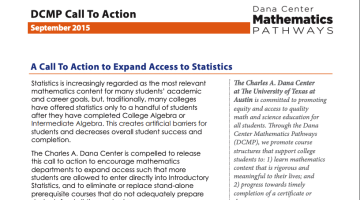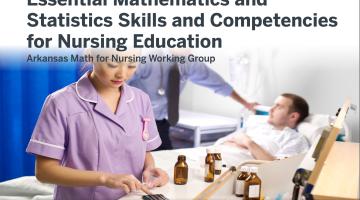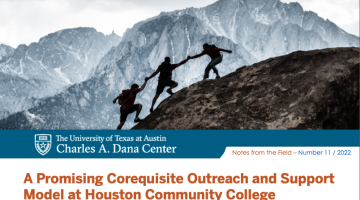
This toolkit describes a three-phase process for communicating support resources to students in corequisite and gateway mathematics and English courses.
This memo from Rick Luttman in April 1987 outlines the items that distinguished the mathematics program at SUNY-Potsdam.
This toolkit presents design principles for implementing corequisite mathematics and provides tools and resources to make them actionable.

Call to action statement that encourages mathematics departments to expand access such that more students are allowed to enter directly into Introductory Statistics, and to eliminate or replace stand-alone prerequisite courses that do not adequately prepare students for statistics content.
This Dana Center resource provides an overview of efforts to implement multiple math pathways at scale in American higher education.
This study focused on the challenges of at-scale corequisite mathematics course development and implementation based on the experiences of 21 system leaders, college administrators, and faculty across four states.

Mathematical competency and effective quantitative reasoning skills are essential for safe nursing practice; however, research reveals a lack of consensus on the necessary quantitative learning outcomes for undergraduate nursing programs.
This resource focuses on Quantitative Literacy (also known as Mathematical Reasoning) as a rigorous, relevant mathematics pathway in Arkansas. It demystifies commonly held myths about enrolling students in this mathematics pathway.

Evidence continues to mount that providing just-in-time assistance in the form of corequisite support courses is helping students succeed in completing their gateway mathematics courses in their first year,3 which has long been a major stumbling block for students who have been designated as unde
This resource focuses on Quantitative Literacy (also known as Mathematical Reasoning) as a rigorous, relevant mathematics pathway in Arkansas. It demystifies commonly held myths about enrolling students in this mathematics pathway.
Spotlight: Updated and New Resources
This toolkit contains resources and guidance on the design of course content, pedagogy, and technology, and on working with programs to identify statistics as an appropriate pathway.

